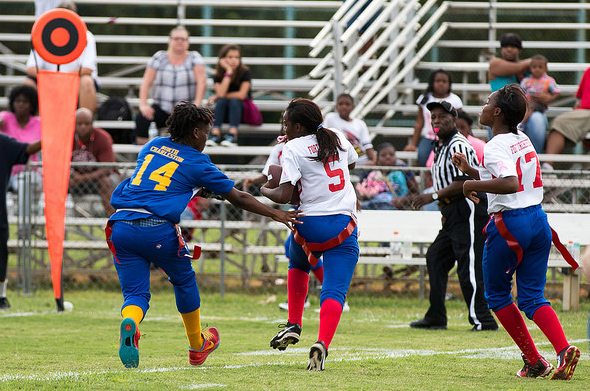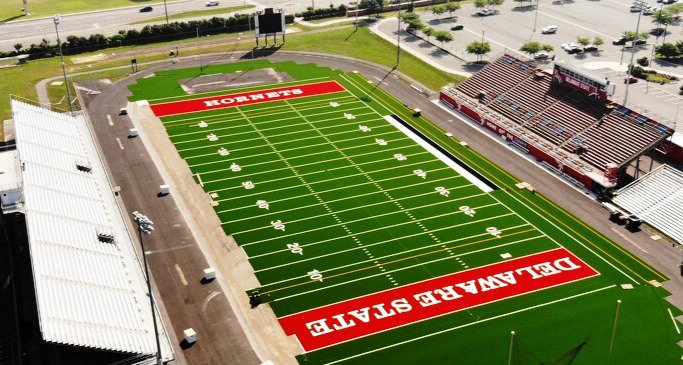Preparing for the Season: Recruiting and Retaining Coaches
{Sponsored} Losing members of the coaching staff is a challenge every head coach faces. It may happen in waves, or perhaps just one coordinator leaves; when this happens, the whole staff is impacted. Dynamics change; assistants or coordinators take on new challenges, and the hole in the staff is felt by all.How can coaches combat and prevent this loss? Much like we tell our players: be prepared.

John Hebert, head football coach at Carmel High School in Indiana, said: “I think the best way to do it is to hire from within. We have a freshman staff of eight guys, and at least half want to move up. You’re working on developing them so when the time comes, you have someone who can step in.” Always being mindful of what the entire staff is capable of is imperative to being able to quickly replace varsity staff with freshman staff members, and then work on filling the hole on the freshman coaching team. Know who will be able to focus on the line or specialist or who can be a coordinator before you lose the current staff member in that position.
The trouble at the high school level (even for a division championship staff and head coach) or perhaps even Division 3 collegiate levels is that coordinators and assistants can’t live off of their coaching salaries. That is why it is imperative that head coaches hire the right staff. The assistants and coordinators must have a good attitude and the personality to handle the goals and work with kids. When the budget isn’t there for compensation, “the staff members need to have the personality to keep up with goals and objectives. If they are going through the winter months trying to get on staff and also not displaying frustration for the time and hoops they’re jumping through, they might be the right person to add to you coaching team,” said Hebert.
What about hiring the right coach if that person doesn’t have experience coaching? Hebert is all for it. “I think that is better. You can teach someone who is open-minded and student-athlete centered. The social and emotional needs of young people are constantly changing,” Hebert said. Meeting students where they are is a talent that a coach needs to have. They must be able to support the kids and help them go beyond the results expected on the field. “The game and all the problems we’re seeing with people on the outside questioning if the game is worth it: this means we must provide the kids with a great experience they can’t get elsewhere,” Hebert said. Coaches need to strike that balance between the support and ability to show disapproval when necessary. Let the kids know you may not have the answer they need, but reflect that you’re aware of their problems via your action. Show them you can be trusted. “I will take that ability over football knowledge,” Hebert said. “I’ve worked with amazing football thinkers and decision-makers, but they were inflexible and unable to find solutions to problems and couldn’t not take things personally.” If you can balance the attitudes and ability and willingness to support the student-athletes with other staff members who have the football knowledge and coaching experience, the coaching team will be well-balanced.
Once the staffing is complete, retention becomes the big challenge. Some coaches take their staff on retreats or to clinics. When at clinics, the team will be split to work on their specialty, but for meals, the team can get back together and discuss what they learned and help everyone grow together into a better, stronger group of coaches.
Appreciation also is something that coaches need to give to their staffs. Since the assistants and coordinators aren’t necessarily well-compensated for their jobs, it is important for the head coach to give them other motivation. Allowing them to speak or praising them in front of the whole team, much like you would your senior players, helps the coaches and kids develop skills they wouldn’t always get through football.
Hebert was an assistant coach for 20 years prior to becoming a head coach four years ago. He learned a lot about what it takes to make a great head coach in his time assisting. “We take time every week to honor a wide variety of players, managers, trainers and assistant coaches, and we try to get an assistant coach to speak in front of the team every week. I divide coaching assignments and give power to those coaches to monitor the progress. I seek feedback from my coaching staff and ask their opinions. You have to be willing to incorporate some of their beliefs into the plan,” said Hebert.
Next, create a cohesive plan for reaching team goals during the coming season. Work with your coaching staff to be sure everyone is on the same page so that the message goes to players in the same way from all coaches. This isn’t only important when new members are on the staff. Getting that refresher going after the season is completed is important. Consider using a Google document that everyone can edit. “We all have some sort of vision of what we’ve done and want to improved. State those things up front and have a private conversation to follow up,” said Hebert. Keep those communication channels open throughout the season so your coaching staff can develop together. Head coaches need to be willing to revise those plans, too.
Any plan can have deviations. Perhaps your best quarterback is injured in game one. Most coaches know who would replace that player, whether it be from the depth chart or from a different position. Every change like that will have repercussions on the other positions on the field and within your staff. A lack of flexibility from the head coach can cause tensions and disruptions within the staff.
ⓒ 2018 USA Football







